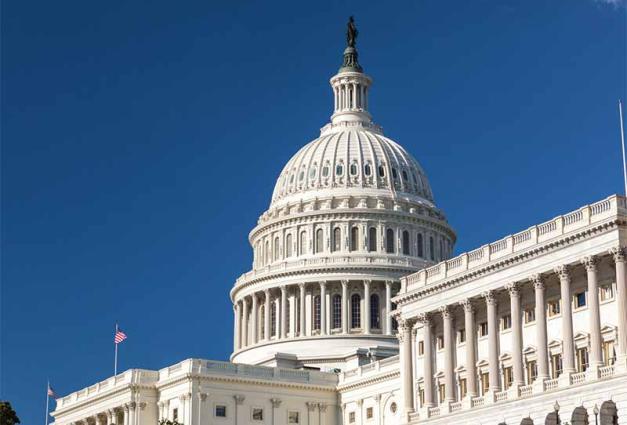The 1954 court decision in Brown vs. Board of Education lent a delayed blow to the legal legacy of Jim Crow, nullifying the oft-cited “separate but equal” justification for racial segregation in public schools. Races could be separated beforehand under the pretense that their required equal status is still maintained because separate facilities, services, etc., equaled each other in quality. A magnanimous courtesy that remained in writing only.
A key conviction that drove the court’s decision was that separating races caused “feelings of inferiority” among the black community. This conviction was famously inspired by experiments conducted by psychologists Mamie and Kenneth Clark, in which black children attending segregated schools consistently chose white dolls over black dolls and judged white dolls as nicer.
This contribution approaches sacred lore in the minds of many psychologists, as it symbolizes the aspiration and possibility of changing people’s daily lives for the better. After all, long hours of administrative work and wall-to-wall meetings are not front and center in the psychology-as-a-career sales pitch. Instead, a life of truth pursuit and changing the world often draws people to social and personality psychology. The reality is that this initial zeal often fades into the background, making way for the anxieties of finding employment in a competitive job market.
Even for those who attempt an escape from the academic publishing treadmill, adversity awaits. Pushing to make a broader impact with research is often confronted with political agendas, institutional inertia, and an impatient public with a desire for unequivocal answers.
Dr. Lani Shiota, an Arizona State University associate professor, is part of the SPSP Government Relations Committee which seeks to help psychologists translate research into policy. Recently, she was invited to Capitol Hill as part of a yearly event held by the Consortium of Social Science Associations, where social scientists are able to make the rounds in congressional offices.
“I learned more about how our government actually works in that one day than in my entire education,” says Dr. Shiota. The biggest lesson was how information is relayed to members of Congress: young (often unpaid) staffers “sit there for 8 hours a day or longer, listen to people and condense what people had to say into a short report”. An experience many of them liken to “drinking from a fire hose.”
These congressional reports, however, can be incredibly influential on policy decisions, highlighting the need to have information that legislative staff can digest and remember.
Psychologists, however, are trained to write 40-page manuscripts filled with caveats and hesitant suggestions. Dr. Shiota thinks we need to be better trained to succinctly summarize our research.
“The crucial thing right now is that we as scientists need to get a lot, a lot, a lot, a lot better at communicating our knowledge in ways that are useful for policymakers. If you are speaking with them, you have 30 to 60 seconds to make your point. If you’re writing, the best-case scenario is you have a page. Realistically, you have a bullet point,” she says.
Condensing research, though, can lead to the loss of nuance. This is especially true when trying to make recommendations on the basis of tentative research.
“This goes a little more deeply at the heart of our comfort zone as scientists,” explains Dr. Shiota. “There’s good reason for [tentativeness in communicating science] because when applying scientific knowledge, people often do misinterpret it and overextend it. But if you’re a policymaker, you have to make a decision now with the information that is currently available. We need to be able to say there’s a lot we don’t know, but here is our best bet right now and you should act on that.”
When pressed about whether this approach could threaten scientists’ credibility and potentially remove their seat at the table with decision-makers, Dr. Shiota reminds us that we “don’t have a seat at the table now to lose.”
However, there are organizations ready to help. The Research-to-Policy Collaboration (RPC), for example, works to match researcher expertise with legislative staff. Scientists who wish to participate are sent consultation requests, which can then be done through virtual or in-person meetings. For those interested in exploring possible careers that apply research to policy, there are several congressional fellowships available through the Society for the Psychological Study of Social Issues (SPSSI) and the American Psychological Association (APA).
Chelsea Crittle, a PhD student at Tufts interested in racial justice, recently completed a summer fellowship through SPSSI which exposed her to a plethora of policy-related experiences in Washington, DC. “I was able to give a speech at the Department of Education on gun policy, attend policy hearings and briefings, and meet with congresspeople from my district.”
While national politics often loom large in our minds, having an impact on policy and people’s lives does not begin and end in Washington. “One thing researchers need to realize is that they can have a profound impact on local policy,” says Chelsea. During her fellowship, she corresponded with several social psychologists in New Jersey who became concerned when the government introduced proposals to have armed guards at local schools to combat gun violence.
“These psychologists did not have any particular expertise or research on the subject, but their community rallied around them since they were able to bring in valuable research and inspire confidence.” Chelsea adds that the two psychologists were able to meet regularly with parents from the school, present them with relevant information, and ultimately gather enough momentum to lobby the school board out of the position. In the end, no armed guards were implemented.
Chelsea’s experience goes to show that you don’t need to have research that speaks to titanic legal cases decided in the Supreme Court to move the needle. Whether it be through better communication of our research or working with community organizers at the local level, psychologists can begin to have an increased footprint in the daily lives of ordinary people.




